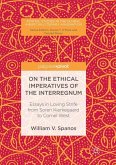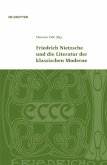When a term is overused, it tends to fall out of fashion. Cynicism seems to be an exception. Its polytropic versatility apparently prevents any discontinuation of its application. Everyone knows that cynicism denotes that which is deemed deleterious at a given time; and every time will specify its toxicities – the apparent result being the term’s non-specificity. This study describes the cynical stance and statement so as to render the term’s use scholarly expedient.
Close readings of textual sources commonly deemed cynical provide a legible starting point. A rhetorical analysis of aphorisms ascribed to the arch-Cynic Diogenes facilitates describing the design of cynical statements, as well as the characteristic features of the cynical stance. These patterns are identifiable in later texts generally labeled cynical – above all in Machiavelli’s Principe. With recourse to the Diogenical archetype, cynicism is likewise rendered describable in Gracián’s Oráculo manual, Diderot’s Le neveu de Rameau, and Nietzsche’s Posthumous Fragments.
This study’s description of cynicism provides a phenomenon otherwise considered amorphous with distinct contours, renders transparent its workings, and tenders a dependable basis for further analyses.
Close readings of textual sources commonly deemed cynical provide a legible starting point. A rhetorical analysis of aphorisms ascribed to the arch-Cynic Diogenes facilitates describing the design of cynical statements, as well as the characteristic features of the cynical stance. These patterns are identifiable in later texts generally labeled cynical – above all in Machiavelli’s Principe. With recourse to the Diogenical archetype, cynicism is likewise rendered describable in Gracián’s Oráculo manual, Diderot’s Le neveu de Rameau, and Nietzsche’s Posthumous Fragments.
This study’s description of cynicism provides a phenomenon otherwise considered amorphous with distinct contours, renders transparent its workings, and tenders a dependable basis for further analyses.








